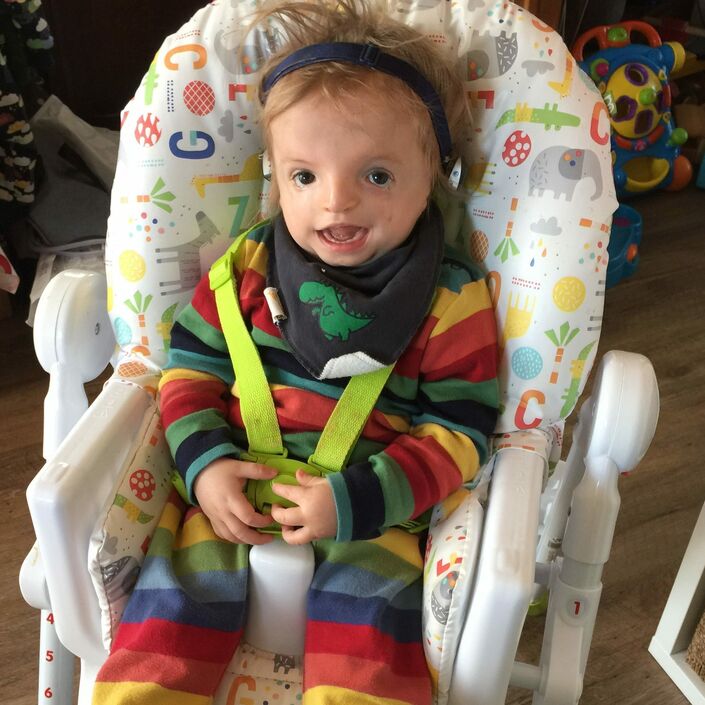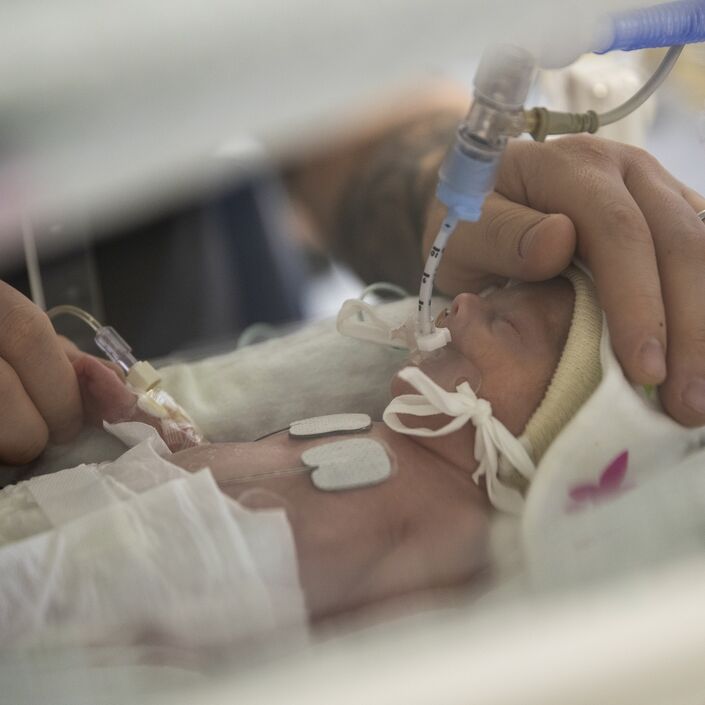Research shows that parents being involved in their baby’s care on the neonatal unit can have positive effects on them and their baby.
What does the research show?
Being involved in your baby's care
Some research shows that being more involved can mean that:
- Babies spend less time in hospital
- Parents feel less stressed
- Babies are more likely to gain weight
- Parents feel happier with the care their baby is getting
- Parents have more success with breastfeeding
- Parents are more comfortable and confident when their baby goes home
- Babies are less likely to be re-admitted to hospital after they go home
You might not be able to get as involved as you’d like straight away. This might be because you are recovering from the birth, or if you have to return to work.
Whatever your situation, the staff on the unit will work with you to get involved when you can, and in a way that is right for you and your family.
Some parents find that starting with one thing, and building up to take on more care can be a good way to begin.
Skin-to-skin
Research shows that doing skin-to-skin care can help to create connections between you and your baby. Being physically close can help you to feel emotionally close too.
Skin-to-skin care can also help:
- Start breastmilk production and breastfeeding, if you've chosen to feed this way
- Your baby to sleep better
- For you to learn each other's smell, which can help with feeding and creating an emotional connection
- For dads and partners to feel physically close to your baby too
There is also some evidence to show that doing skin-to-skin can help to calm your baby, and can reduce any stress or anxiety you feel as a parent, too. It can especially help to soothe them if your baby is having any painful or distressing procedures.
Some evidence also shows that in premature babies, those who had skin-to-skin care had better longer-term outcomes.
Staff on the neonatal unit are likely to ask if you’d like to try skin-to-skin care with your baby, if your baby is well enough. They will also help you to find the best way to do this, for you and your baby.
This means making sure you feel confident and comfortable, and that you take things at your own pace.
Speaking to your baby
Talking to your baby can help them, as well as help you feel more connected to them. Some research shows that parents speaking to their baby in hospital can increase how much oxygen is in your baby’s blood, something which is very important to their overall health.
Some research also shows that your baby’s heart rate can increase when hearing their mother’s voice. You might like to try reading or singing softly to your baby. This is something that wider members of your family can get involved with too.
It is also something which is easy to do even if you aren’t able to hold your baby. You might feel a bit self-conscious to begin with, but your baby knows your voice, and hearing it will let them know you are there.
Being physically and emotionally close
Researchers have looked into the differences between being physically close with your baby, and being emotionally close with them.
If you are able to be with them physically, and do things like skin-to-skin, this can help you feel more emotionally connected with your baby too. But the two might not always go hand in hand.
You might be physically close to your baby but find it hard to feel connected with them. Or, you might not be able to spend much time on the unit, but feel connected with them emotionally through photos or videos you’ve taken, or through clothing that smells of your baby.
It can be really hard to feel connected with your baby in both ways. Some parents feel a lot of pressure to bond, and can feel that their baby’s stay in neonatal care is getting in the way of being able to do this.
You’re not alone, and there is support for you. You might find it helpful to chat with the staff on the unit and tell them how you’re feeling and what you’re worried about.
They will be able to suggest ways you can feel closer with your baby, both physically and emotionally.
Getting used to holding your baby
Research looking at the experiences of first time parents whose baby was in hospital found that parents were often nervous or unsure when it came to holding their baby, because they were scared of hurting them.
But the research also showed that once parents in neonatal care did connect physically with their baby, the emotional connection really grew.
If you’re unsure of how to hold your baby, or you’re worried you might hurt them, you can speak to the neonatal staff. They will explain how best to handle your baby, and what is the safest and best way to do this.
Staff are also very used to these worries from parents, and will be able to reassure you.
What parents told us
We surveyed over 1,200 parents to find out more about how they felt when they arrived on the unit, how they got involved in their baby’s care, and how this affected them and their baby.
The most empowering part of getting involved
The parents we surveyed told us that the most empowering parts of getting involved in their baby’s care were:
- Skin-to-skin
- Holding them
- Feeding them
- Bathing them
- Touching them
- Clothing them
- Talking to them
- Reading to them
- Singing to them
- Watching them
- Changing their nappy
- Expressing milk
- Being involved in ward rounds
There might be other things you would like to do with your baby. Staff on the unit will be able to talk through all the options with you, to help you be as involved as you’d like to be.



